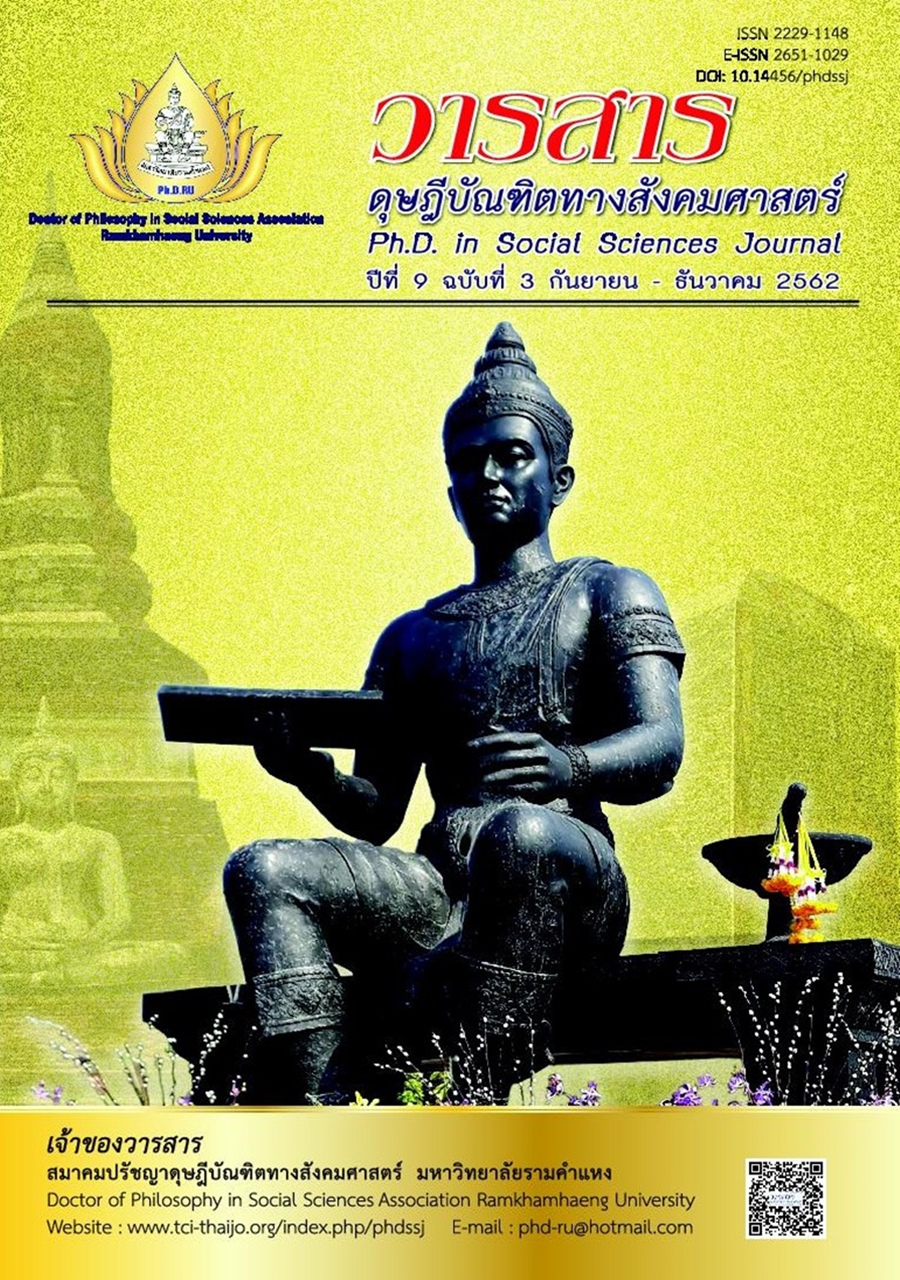A Training Program to Develop Required Competencies for Royal Thai Air Force Signal Intelligent Operators
Main Article Content
Abstract
This research aimed to 1. study the required competencies for the Air Force signal Intelligence officer. 2. to develop training program for the required competencies development of signal intelligent officer for the Royal Thai Air Force (RTAF). 3. Evaluate the training program for the required competencies development of signal intelligent officer for RTAF. Searching the required competencies of signal intelligent officer for RTAF personnel based on the Air Force’s core performance with delphi techniques. By 18 experts, the training program was developed to develop the necessary competencies for the Air Force Signal Corps And evaluate the training program.
The results of the study found that:
1. The seven necessary competencies for RTAF signal intelligence operators are as follows: (1) Having language ability for translating snared communication information; (2) having knowledge and basic understanding of physics and electromagnetic wave theory; (3) having basic knowledge of the functions of radar equipment (ELINT); (4) having an understanding of encryption theory (COMINT); (5) having an understanding of the products of responsible work units, as well as the needs of users in the following step to be taken in information patterns; (6) having the capability for evaluating the products of signal intelligence with an efficiency matching users’ needs; and (7) having the capability to apply useful technology to signal intelligence.
2. The training program will be developed to improve the performance required by the Air Force’s signal intelligence personnel.
Article Details
Academic articles, research articles, and book reviews in the Ph.D. in Social Sciences Journal are author’s opinions, and not the publisher’s, and is not the responsibility of the Ph.D. in Social Sciences Journal Philosophy Association, Ramkhamhaeng University. (In the case that research is done on human, the researcher has to be trained in Ethics for Doing Research on Human Training and has to produce the evidence of the training).
References
Goldstein, I. L. (1993). Training in organizations: Needs assessment, development, and evaluation (3rd ed.). Pacific Grove, CA: Brooks.
Kasetphikun, C. (2012). The development of training curriculum for Thai language teachers in analytical thinking competencies. Eastern Asia University Journal, Social Sciences and Humanities Edition, 2(2), 200-208. [In Thai]
Lewis, S. H. (1993). Operational and technical sigint 2020 foresight, no.1 operational and technical SIGINT - 2020 foresight? Research Project. Washington, DC: Fort McNair.
Ministry of Defense. (2008). Government Organization Act. Bangkok: Author. [In Thai]
Matthew, M. A.(2001). Secrets of signals intelligence during the cold war and beyond. Portland, OR: Frank Cass.
Rupa, P. (2011). Techniques for organizing training and meetings. Bangkok. Duangkamon. [In Thai]
Spencer, L. M., McClelland, D. C., & Spencer, S. (1994). Competency assessment methods: History and state of the art. Boston: Hay-McBey Research Press.
Spencer, L. M., & Spencer, S. M. (1993). Competence at work. New York: John Wiley & Sons.
The Secretariat of the Senate. (2007). Constitution of the Kingdom of Thailand. Bangkok: Author. [In Thai]


